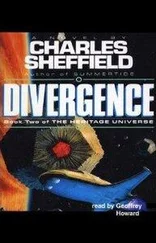So near and yet so far. Celine stared at the mottled globe of Earth, hanging in front of her and seemingly close enough to reach out and touch.
The old Greeks had a word for it, just as they had a word for most things. It was hubris, an arrogance that defies the gods and invites disaster. According to Reza Armani, expedition mystic, in its journey to Mars the Schiaparelli had moved into the abode of the gods, the space between the planets; now its crew was to pay the penalty.
The added irony was that they had all discussed this possibility. Over and over, on the way to Mars and on the surface itself, they had agreed that the fatal Gotcha! had to be the one you never expected; otherwise, you built contingency plans to deal with it. A thousand things might go wrong on the way to Mars, landing on Mars, exploring Mars, rising from the surface of Mars, and returning from Mars. You had to prepare for all of them and make the tough decisions ahead of time. Only when you were finally in Earth orbit, in the hands of a reentry system and personnel honed to perfection by ten thousand tries, could you at last relax and feel safe.
Celine couldn’t blame the others. She had gone along with the argument. Who could imagine that the reentry system, that whole gorgeous and intricate assembly of people and techniques and hardware and software, might vanish in one flash of free electrons and electric field surge? The Schiaparelli itself had never, even in its designers’ wildest imaginings, been seen as a ship able to endure reentry through Earth’s thick atmosphere. It would disintegrate fifty miles up.
“We have to make a decision pretty soon.” Zoe Nash was seated next to Celine, studying her own displays. “It’s a onetime choice. I think it will be an easy one, but we have to be sure. Ludwig?”
“No change.” He was wearing an earphone and working a miniaturized control pad. To Celine, he looked more like a willowy blond elf than ever. The prospect of disaster was driving them all to their extremes. Zoe was more impatient and demanding. Wilmer was remote and thoughtful. Reza was increasingly strange, oscillating between the manic clown and the aloof mystic. Celine was not sure, but earlier in the day she thought Reza had been weeping. A bad sign, in a group whose time of real stress still lay ahead.
So what had Celine become? Indecisive, probably, to the point where she could see impossible problems in doing anything at all.
“I’m picking up only a few dozen signal sources from Earth,” Ludwig said. “Normally I would expect hundreds of thousands. All the signals are weak, and so far as I can tell with our onboard equipment they are low frequency and omnidirectional. I’d say they’re amateur radio signals. If we wait—”
“What about signals from space sources?” Zoe cut him off in midsentence. The Schiaparelli’s largest’ scopes were trained on the big international space stations, ISS-1 and ISS-2, and their images were showing on her displays.
“The high orbits are broadcasting as usual — I’m receiving regular signals from all the automated geosynchronous birds. My question is whether anyone down below is picking them up.”
“Still nothing from the manned stations?”
“Not a peep. No output from the polar orbiters, either.”
“We have to assume the worst.” Zoe swiveled in her seat. “Anything in low orbit had its electronics wiped out by the EMP. Alta, give me a second opinion.”
Alta was watching in glum silence. She had been studying the same images as Zoe. She took her time before she answered, while Zoe sat and fidgeted impatiently.
“The hatches are invisible on both stations,” Alta said at last. She sounded to Celine like a robot, without hope or feelings. “Even at highest magnification, I can’t tell if they are open or closed. I see no sign of interior lights, but of course they might be turned off to conserve power. I don’t think the high data rate antennae are working. They seem to be pointing in random directions. I see two small single-stage orbiters in docking position at ISS-2, and none at ISS-1. That’s unusual. Maybe there were orbiters at ISS-1, there surely should be. But if they were secured electronically and not mechanically, after the gamma pulse they would have been released. They could be floating quite close to the station; a general sky scan to find them would take quite a time.”
“Time we don’t have.” Zoe turned back to face the screens. “Assuming that the life-support systems failed two weeks ago and no one is presently alive on either station, the general condition of all systems must be deteriorating. We have to pick one and get over to it as fast as we can. I say we head for ISS-2. Any discussion?”
A thirty-second silence followed. Celine found that in itself depressing. The crew of the Schiaparelli had been picked because they were bright, innovative, and opinionated. When no one could think of a second option that was a very bad sign.
“One point,” Alta said at last, and Celine found her hopes rising. “This is not exactly discussion, but it is something that you need to be aware of. Neither of the single-stage orbiters docked at ISS-2 is class three or better. Each one can carry only three people, four at a real pinch.”
The others, without a word, turned and looked at Wilmer Oldfield. He frowned back at them. He out-massed the others by at least fifty percent.
Zoe gave a barking laugh. “Starvation rations for Wilmer, until we’re down on Earth. However we arrange the groupings, we’ll have to split up and ride home in two parties. Anything else? If not, we’ll get this show on the road. Jenny. Trajectory and rendezvous?”
“Computed and stored.” Jenny was like a computer herself, steady and meticulous and unemotional. “I allowed an arbitrary start time up to four hours from now.”
“That’s ample. Alta. Confirmed configuration?”
“I recommend we fly just Section Three over to ISS-2. That gives us more fuel for final maneuvering — but not enough to reach ISS-1 if we don’t like what we find.”
“Understood. Any final questions before we go ahead? Yes, Reza, what is it?”
“My specimens.” He was in his most agitated phase. “The Mars life-forms. I realize we have a strict mass limit—”
“Forget it. No Mars samples. Just our bodies, and our personal effects.”
“I refuse to accept that. These are small, they are light, and they are so valuable—”
Zoe cut him off. “I asked for questions, not arguments. They are valuable samples, and indeed we put great effort into collecting them. We will take them with us to ISS-2. If we can create a safe environment for ’ them there, we will leave them until someone can come up from Earth and retrieve them.”
“Suppose we can’t create a safe environment for them?”
“That will be unfortunate. But, Reza, I assume that if it comes to saving you or saving the samples, it is no contest.”
Reza paused for a long time. Celine thought he was about to get into a shouting match with Zoe. Jenny put a hand on his arm. He looked at her, and then again at Zoe. He cupped his chin and cheek in his hand in a classic pose. At last he said, “I’m thinking.”
Zoe glared at him.
She doesn’t get the reference, Celine thought. And Reza is way out of line. He ought to know that it’s the wrong time for clowning.
“No samples,” Zoe said. “If we take nothing back to Earth except our own selves, that is enough. There will be other expeditions to Mars, but we are the first. And we are going home. We are going home. We have come too far and worked too hard for me to accept anything else.”
Читать дальше












